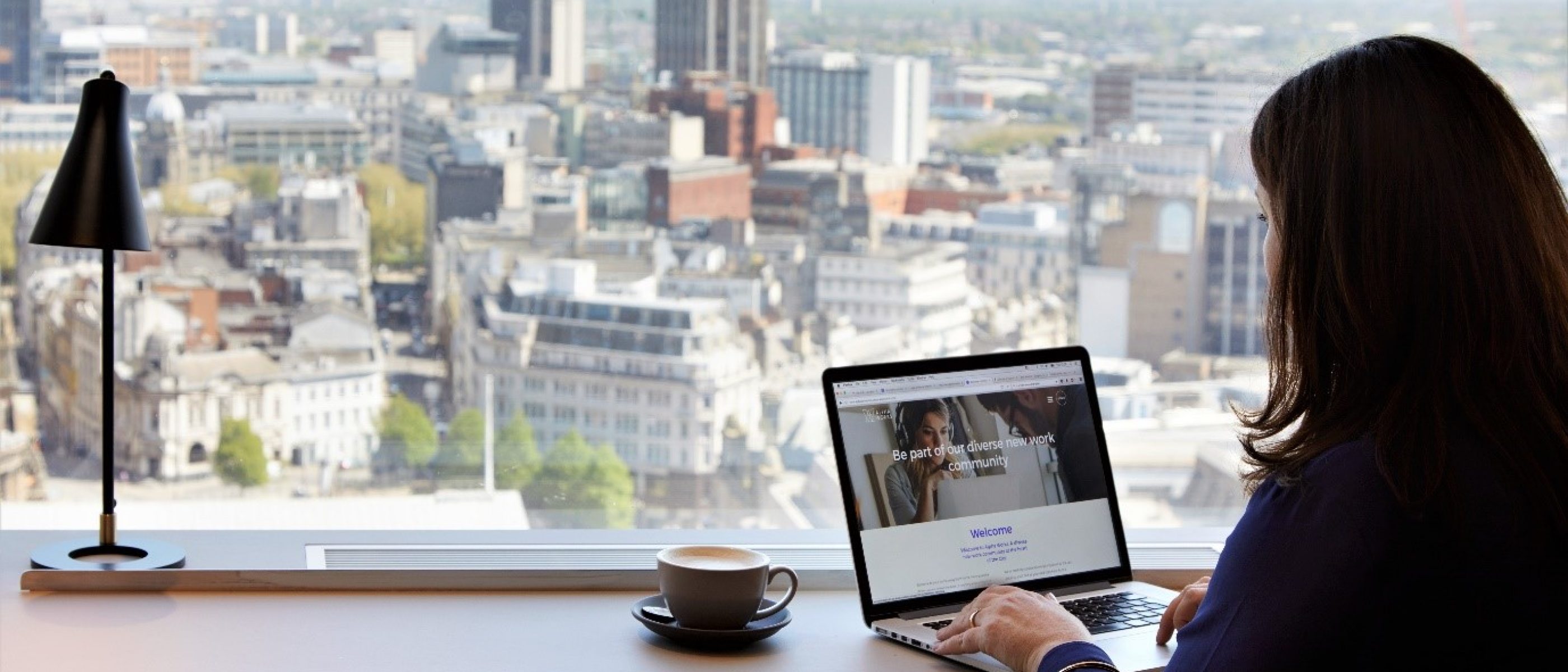
Flexibility has always been key to what we do and this is what makes the flexible workspace industry so resilient, especially now. As people plan their return to the office we have seen exciting levels of demand for workspace. However, we have also seen a change in what people require from their offices.
Whilst we have learnt the importance of having a workspace to collaborate, create and evolve into, the option of being able to work from home has also proven to be very valuable over the past year. A large proportion of businesses are now working towards a model which allows employees more freedom, increased trust and less time wasted in physical meetings and on the daily commute.
Hub and Spoke Workspace Model
Businesses are putting their employees at the forefront of their office planning going forward. Rather than gather a large number of staff from all over the country to a central point in London, a hub and spoke style model has become favourable. This means taking smaller offices in a number of buildings, closer to employee’s homes, with one base central to it all, if necessary.

This allows people in similar areas to meet and collaborate. It offers employees access to a supportive, business environment away from distractions, with plenty of space to roam. This reduces commute times, allowing employees to use their mornings and evenings for life – exercise, personal interests, family time – whatever they need to look after their mental and physical wellbeing.
Not to mention, it makes ecological sense for teams to commute shorter distances, fewer days of the week.
Strength in Our Workspace Providers
While names such as WeWork and Regus have featured heavily in the media recently, the market is vast and varied in more ways than one.
Many of our partners, Office Space in Town for example, own their buildings. Not only does this give them the freedom to design their offices in the unforgettable themes and styles that they do, it means they can offer their tenants added security through unforeseen events such as mass isolation from a global virus.

Being the building leaseholder, the landlord can’t suddenly decide to change the usage of the building and throw out all current tenants. There’s also less possibility that the provider will default on rent payments, again leaving tenants without a workspace, as being a leaseholder initially requires solid covenants strength.
A Brand Needs a Home
Throughout a long year, many companies have seen huge changes in the way they work. Some have seen demand increase and the need to recruit become inevitable. Others have had to adapt and rethink the way they operate. One thing that has suffered all round is collaboration. Whilst we have made use of applications such as zoom, when building a brand and a business social interaction is irreplaceable.

Mike Gedye, head of technology sector vertical at real estate giant CBRE, and Simon Dudley, head of analyst relations at Logitech Video Collaboration spoke about the topic in an interview with City A.M.
‘“Look at the biggest companies in the world, their brand has manifested in their physical environments,” said Gedye, pointing out that their culture is defined by more than just a strap line on their website, but driven by a team’s willingness to help others collaborate on projects, have a spontaneous drink at the pub or a line manager lunch.
“Activities that establish a culture are more physical than virtual,” he said.
It’s true some of this can be done with a virtual beer, but a corporate purpose, sense of community and togetherness that an employee feels when part of an organisation must come from physical human interaction.’
This is an opinion that we at Officio have seen echoed as people look to return to the workplace. The pandemic has confirmed that this sector is resilient, adaptable and above all, irreplaceable even if the needs of businesses change. Call us on 020 3053 3882, we have the perfect solution for you.